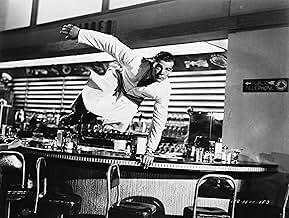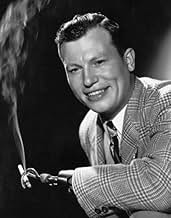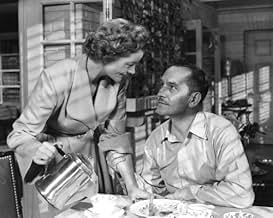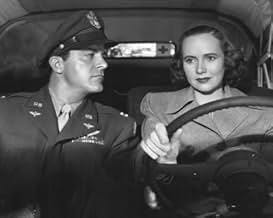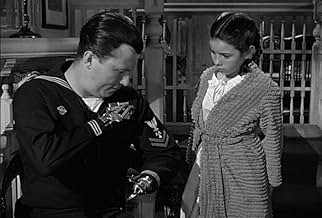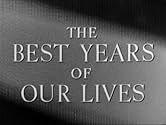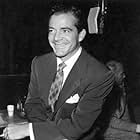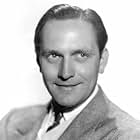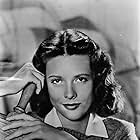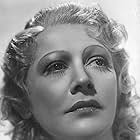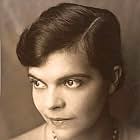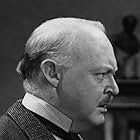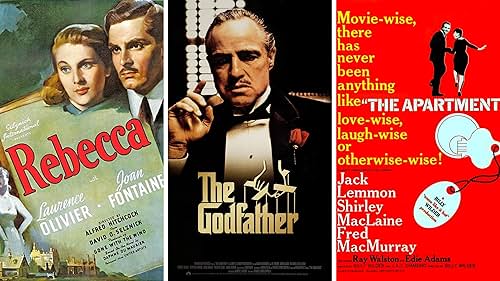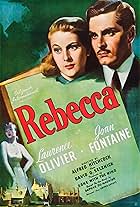Three World War II veterans, two of them traumatized or disabled, return home to the American midwest to discover that they and their families have been irreparably changed.Three World War II veterans, two of them traumatized or disabled, return home to the American midwest to discover that they and their families have been irreparably changed.Three World War II veterans, two of them traumatized or disabled, return home to the American midwest to discover that they and their families have been irreparably changed.
- Won 7 Oscars
- 21 wins & 3 nominations total
- Al Stephenson
- (as Frederic March)
- Director
- Writers
- All cast & crew
- Production, box office & more at IMDbPro
Best Picture Winners by Year
Best Picture Winners by Year
Storyline
Did you know
- TriviaFor his performance as Homer Parrish, Harold Russell became the only actor to win two Academy Awards for the same role. The Academy Board of Governors thought he was a long shot to win, so they gave him an honorary award "for bringing hope and courage to his fellow veterans through his appearance." Later in the ceremony, he won for Best Supporting Actor.
- GoofsWhen Al introduces his wife and daughter to Fred and Homer at Butch's, he refers to Dana Andrews as Homer and Harold Russell as Fred. This was intended as a consequence of Al being drunk.
- Quotes
[after Peggy tells her parents that they never had any trouble in their relationship]
Milly Stephenson: "We never had any trouble." How many times have I told you I hated you and believed it in my heart? How many times have you said you were sick and tired of me; that we were all washed up? How many times have we had to fall in love all over again?
- Crazy creditsThe character played by Ray Teal (the Axis sympathizer whom Homer Parrish attacks at the soda fountain) is listed in the credits as "Mr. Mollett". However, the character's name is never mentioned or otherwise alluded to.
- Alternate versionsThe film was modified to play on a wide screen and reissued on February 3, 1954.
- ConnectionsEdited into Chain Lightning (1950)
- SoundtracksAmong My Souvenirs
(1927) (uncredited)
Music by Edgar Leslie
Lyrics by Lawrence Wright
Played on piano by Hoagy Carmichael
And while we don't often learn from history, we can be thankful that for once the United States of America did learn from what happened with its veterans after the previous World War. The GI Bill of Rights is mentioned in passing in The Best Years of Our Lives was possibly the greatest piece of social legislation from the last century. So many veterans did take advantage of it as do the veterans like Fredric March, Dana Andrews, and Harold Russell who you see here.
All three of those actors played archetypal veterans, characters that every corner of the USA could identify with. They all meet on an army transport plane flying to the home town of all of them, Boone City, Iowa.
War is a great leveler of class and distinction. Bank employee March, soda jerk Andrews, and high school football star Russell probably would never meet in real life even in a small town like Boone City. But they do meet and war forges indestructible bonds that can never be broken.
March is the oldest, a man with two children and Hollywood's perfect wife Myrna Loy. He settles in the first and the best. He has some wonderful scenes, getting cockeyed drunk on his return and later with a little bit of liquor in him, tells the bank officials at a banquet off in no uncertain terms.
I also love his scene where another returning veteran, a sharecropper wants to get a bank loan for his own piece of land. Watch March's expressions as he listens to the man's pitch for money. You can feel him read the man's soul. It's what got him his Second Best Actor Oscar for this film.
Harold Russell was a real veteran who lost both his hands during service in the Pacific. He got a special recognition Oscar for his performance. Because of that it was probably unfair to nominate him in the Supporting Actor category which he also won in. His performance, especially his scenes with Cathy O'Donnell as his sweetheart who loves him with or without his hands, is beyond anything that could be described as acting.
Dana Andrews is the only officer of the three, a bombardier in the Army Air Corps. Of the group of them, maybe he should have stayed in. He also comes from the poorest background of the group and he was an officer and a gentleman in that uniform. That uniform and those monthly allotment checks are what got Virginia Mayo interested enough to marry him. The problem is that he's considerably less in her eyes as a civilian.
While Mayo is fooling around with Steve Cochran, Andrews has the great good fortune to have March's daughter Teresa Wright take an interest in him. They're the main story of the film, Andrews adjustment to civilian life and adjusting to the fact he married the wrong woman. Not all veteran's problems were solved with GI Bill.
Myrna Loy gets little recognition for The Best Years of Our Lives. My guess is that it's because her role as wife was too much like the stereotypical wife roles she had patented over at MGM. Still as wife to March and mother to Wright she really is the glue that holds that family together.
The Best Years of Our Lives won for Best Picture for Sam Goldwyn, Best Director for William Wyler and a few others besides the two acting Oscars it got. It was a critical and popular success, possibly the best film Sam Goldwyn ever produced. It remains to this day an endearing and enduring classic and will be so for centuries. It's almost three hours in length, but never once will your interest wane.
The best tribute this film received came from Frank Capra who had a film of his own in the Oscar sweepstakes that year in several categories. In his memoirs he said that he was disappointed to be skunked at the Oscars that year, but that his friend and colleague William Wyler had created such a masterpiece he deserved every award he could get for it.
By the way, the film Capra had hopes for was It's A Wonderful Life. The Beat Years of Our Lives can't get better praise than that.
- bkoganbing
- Apr 22, 2007
- Permalink
Details
Box office
- Budget
- $2,100,000 (estimated)
- Gross US & Canada
- $23,650,000
- Gross worldwide
- $23,667,133
- Runtime2 hours 50 minutes
- Color
- Aspect ratio
- 1.37 : 1
Contribute to this page



